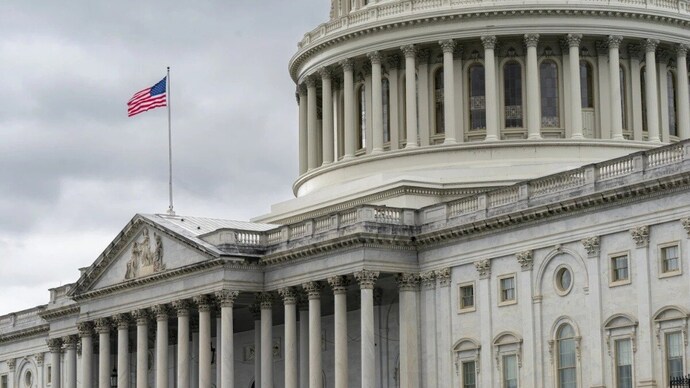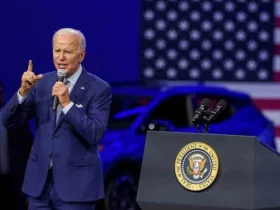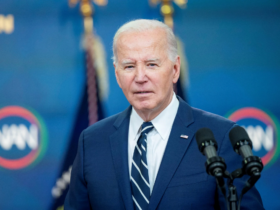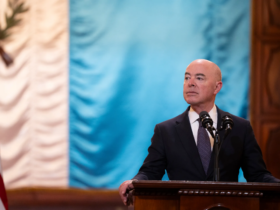United States – The US Senate, Democrats majority, approved a stopgap spending bill that was passed by the House, controlled by Republicans, in order to avert a partial government shutdown in less than two days when spending funding was ready to expire.
Senate Approval Sets the Stage
The Bill, which got 77-13 votes, passed the Senate by both parties and will in Congress go to President Joe Biden’s desk for signing into the law. It will put in place some deadlines to fund one-tenth of the government by March 8 and fund the other half until March 22, as reported by Reuters.
In a statement, Biden stated that the passage spared Americans from a disastrous shutdown but also noted that “this is a short-term fix, not a long-term solution.”
On Thursday morning in the House, 207 Democrats, together with 113 Republican representatives, voted 320-99 in favor of the continued resolution providing temporary funding until enough time is available for the FY 2019 appropriation bill’s passage.
Discretionary Spending Compromise
It is already two months since Republican House Speaker Mike Johnson and Charles Schumer, the Democratic Majority Leader, had a compromise on the discretionary spending limit of $1.59 trillion for the fiscal year.
Johnson, who has only served as speaker since late October, again used a procedural mechanism that necessitated the majority of Democratic support to pass the emergency funding law, a move that could instead frustrate hardliner conservatives, as reported by Reuters.
Without the 97 “no” votes by the speaker from his 219-member Republican conference, his treachery could be exposed as soon as he deals with next week’s full-year appropriations bills and on to the unplummy Ukraine aid issue.
Temporary Relief Until March
Three House Republicans, including Michael McCaul, the chairman of the House Foreign Affairs Committee, have foreseen that President Johnson will complete support for Ukraine aid, Israel, and the system in the Indo-Pacific, making another six budget bills by March 22. The Senate, in a bipartisan manner, was earlier this month passed the Bill worth $95 billion for national security.
“I’m eternally optimist. We are going to do it,” said McCaul, who proposes a loan program instead of direct support, adding the clients could be made to seize and liquidate Russian sovereign assets to cancel the debts.
Biden called on House Republicans “to put our national security first and move with urgency to get this bipartisan bill to my desk.”
Additionally, Republican Representatives Brian Fitzpatrick and Don Bacon have championed legislation that encompasses aid for US allies and reintroduces the “Return to Mexico” border policy excluding humanitarian assistance.
Even though the proposed Bill will bring some reprieve, the two sides of the aisle will still be embattled, as the Republican wing wants to cut down on funding for the many programs it wants to downsize.
For several days, President Johnson had been under pressure from the hardline Republicans to use a closure as a show of force demanding the Democrats to accept conservative policy ideas, such as a partisan provision intended to limit the flow of migrants through the U.S.-Mexico border.
US Reps. Chip Roy said the group will attempt to convince Johnson to bring to the House floor a new spending bill that will keep the government funded from today up to September 30 but will slash non-defense spending while preserving that of defense and veterans’ benefits.
“We believe that we could do that. We believe that actually presents a good alternative,” Roy told reporters.
Economic Implications and the Path Forward
House Republican Representative Patrick McHenry paralleled the incident, saying that Johnson might not have encountered the crisis of spending given that a few hardliners opposed leader Kevin McCarthy to pass a bipartisan resolution to avert a shutdown in September, as reported by Reuters.
“This is the House Republicans coming to terms with reality,” said McHenry. “It’s been clear for months that this is the outcome. To get on with it is the best thing.”
According to major watchdogs, the repeated ‘till the last day’ habit harms the credit ratings of a country whose debt now has surpassed the US dollar mark – 34 trillion.






